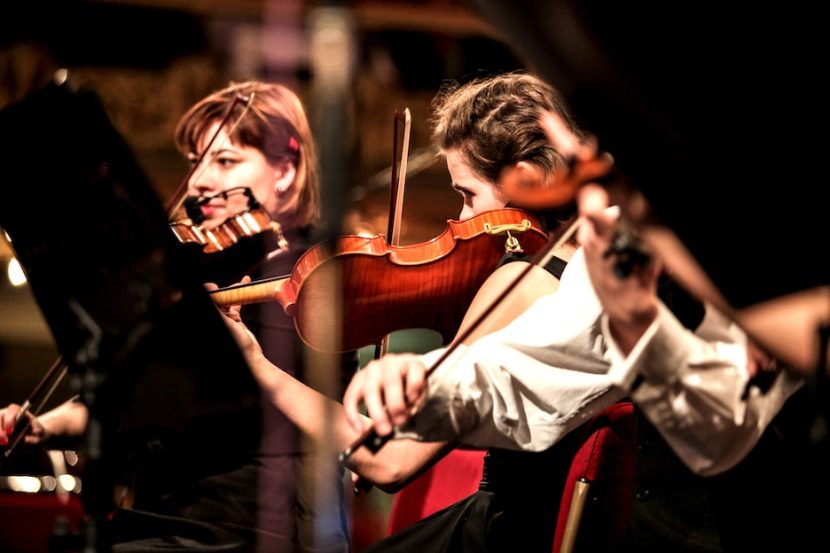Your music school peers will have a far greater impact on your personal and professional life than you may realize. When you consider the merits of any of the schools you visit or are deciding between, think about who else will be there.
by Kate Kayaian
Motivational speaker and businessman Jim Rohn was known to have said that we are the average of the 5 people we spend the most time with. As a music student, how will your music school peers shape your future opportunities?
When considering a school, find out:
1. What is the school known for?
Does it attract students who are passionate about your particular area of interest? And how does the school support that focus?
For example, if you are interested in becoming a marching band director, does your school host a marching band festival? If your focus is music industry, does the school provide internship opportunities?
2. What size will your musical peer group be?
Will you be a big fish in a very small pond? While it can be great to be guaranteed most of the performance opportunities that arise, limited contacts in your network will work against you once you graduate.
On the other hand, will there be so many music majors that you feel lost in a sea of other students with limited opportunities to stand out?
3. Are graduates successful?
Who are the school’s bright stars? (Just take a look in their marketing materials – they’ll be front and center!) Are they working in your area of interest? Successful alumni can serve as future mentors and provide great career connections.
4. What do students do during the summer?
Do students attend summer music festivals? Work at internships? Do faculty bring students to specific summer programs? Connections made during the summer provide another layer to your professional network.
5. Are faculty members active in music outside of teaching?
Once you graduate, your teachers become (overnight!) your colleagues. Do their interests line up with what you hope to do?
You may win a job in the orchestra where they perform, or they may hire you to play in their jazz band. Even if you’re not working directly with your teacher, they can introduce you to people who will help your career.
6. Do you share other interests with other students?
College is a time to explore and grow as a musician as well as a person. Do you see your overall priorities and values reflected in the clubs, activities and sponsored events at the school?
On the flip side – will there be opportunities to try new things and meet people who are NOT interested in the same things as you? How much diversity is reflected in the school culture? Because as important as it is to be surrounded by people who you can immediately relate to both musically and personally, it’s just as important to have access to people, ideas, and ways of making music that are completely foreign to you. It’s how you grow as a musician and as a human being.
Kate Kayaian, B.M., New England Conservatory, is a cellist and teacher based in Hamilton, Bermuda. She also writes Tales From the Lane: A Lifestyle Blog for Classical Musicians.
Photo Credit: Jan Střecha



Leave a Reply